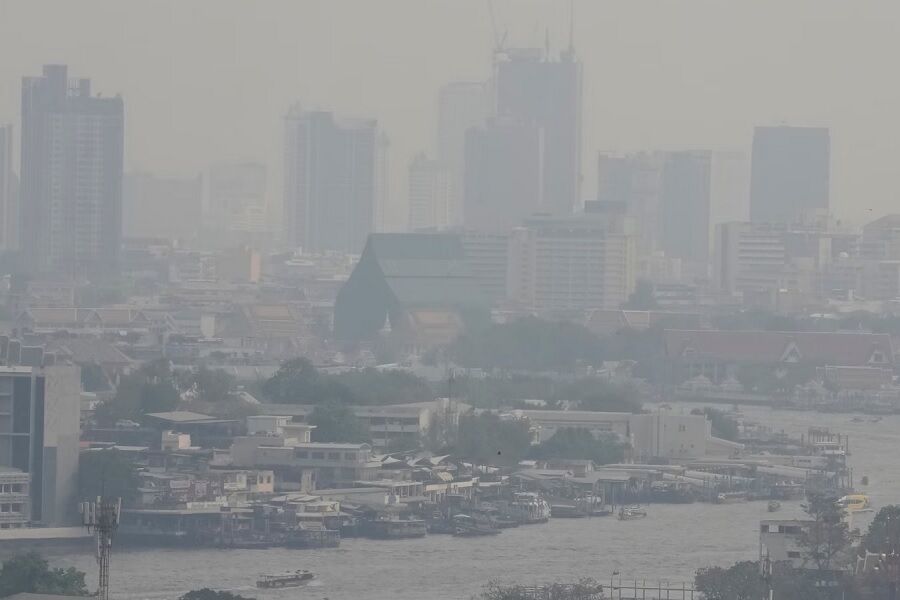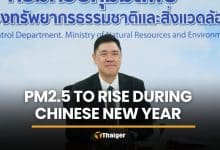Chiang Rai hits highest air pollution levels in Thailand

Air pollution has reached critical levels in the northern and northeastern regions of Thailand, with 36 provinces reporting particulate matter (PM2.5) concentrations exceeding the safe standard, according to a recent report from the Air Pollution Control Department (APCD) under the Ministry of Natural Resources and Environment.
The province of Chiang Rai recorded the highest levels in the country. Over the next seven days, from March 5 to March 11, an increase in PM2.5 levels is anticipated across the north.
As of 7am today, the APCD reported that the 24-hour average PM2.5 levels ranged from 12.4 to 75.6 micrograms per cubic meter (µg/m³), surpassing the safe threshold of 37.5 µg/m³ set by Thai standards. These hazardous conditions have affected the health and daily lives of residents in the northern and northeastern provinces, with Chiang Rai, Nan, Mae Hong Son, Phayao, Chiang Mai, and several others exceeding the PM2.5 standard.
The northern region, in particular, has been hard hit, with measurements between 30.6 and 75.6 µg/m³, with the district of Wiang Phang Kham in Mae Sai, Chiang Rai, experiencing the highest pollution levels in Thailand. The northeastern region also recorded high levels of PM2.5, ranging from 29.6 to 66.5 µg/m³.
Meanwhile, six areas in the central and western regions and one area in the eastern region exceeded the standard. In contrast, the southern region maintained generally good air quality, with measurements between 12.4 and 29.3 µg/m³. Bangkok and its vicinity showed moderate levels, ranging from 18.7 to 36.3 µg/m³.
The forecast for the next seven days predicts a decrease in PM2.5 concentrations in Bangkok and surrounding areas. However, the northern region is expected to see an increase from March 5 to March 9, while some northeastern areas may experience a decrease from March 9 to March 11. The eastern region is also expected to see an improvement over the same period, with the south of the country continuing to enjoy good air quality.
Health authorities have advised the general public to exercise caution, recommending reduced outdoor activities or the use of protective equipment. Those with pre-existing health conditions are urged to be particularly careful and to seek medical advice if they experience any health issues. Residents in areas severely affected by the pollution (designated as red zones) are advised to avoid outdoor activities or to protect themselves if necessary.
Air quality crisis
For up-to-date information, the public can monitor the situation through websites like Air4Thai.com and airbkk.com, or by using the Air4Thai and AirBKK mobile applications. It is essential that individuals stay informed and take appropriate measures to protect their health during this air quality crisis, reported KhaoSod.
Latest Thailand News
Follow The Thaiger on Google News:


























